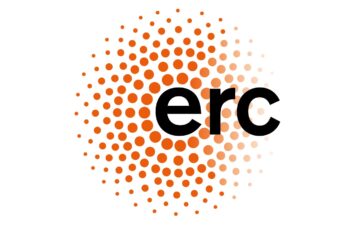JU organisational unit: Institute – Astronomical Observatory
Faculty of Physics, Astronomy and Applied Computer Science
Field of science: Exact and natural sciences
Discipline: Astronomy
Scope: Space telescopes
Number of posts: 1
Type of employment: Employment contract
Working time: Full-time
Planned duration of employment: 24 months
Expected date of employment commencement: 1 August 2024 – 1 October 2024
Gross salary: 3600 EUR
Requirements
The selection procedure is open for all individuals, who meet the requirements set out in Articles 113 and 116.2.3) of the Act of 20 July 2018 – Law on Higher Education and Science, and who meet the following eligibility criteria according to § 165 of the Statute of the Jagiellonian University:
- holding at least a doctoral degree;
- having relevant scientific achievements;
- taking active part in scientific life.
Additional requirements and expectations
- PhD in astronomy and/or astrophysics,
- additional academic education in applied computer science and/or space engineering,
- documented experience in observational astronomy and/or astrophysics (particularly satellite-based),
- proficiency in English,
- interest in the project objectives and motivation to participate in the planned research.
Project title
ERC Consolidator Grant 2022
Hydrogen and deuterium survey of minor bodies: transformative science with a purpose-built CubeSat (101089312 HYADES)
Project description
The HYADES project directly derives from the vast research possibilities offered by Low Earth Orbit, and aims at a construction of a small space telescope designed specifically to detect hydrogen and deuterium around comets and asteroids through the ultra-luminous Lyman alpha transition (in the far ultraviolet). Thanks to the unparalleled sensitivity to these atoms, the satellite under development will provide definite answers to some of the most profound problems of the near Universe. First, it will enable determination of the isotopic composition in water for dozens of comets of different types. These measurements will ultimately resolve the puzzle of cometary origin of water on Earth and unveil the link between present-day cometary reservoirs and their original place of formation in the solar nebula. Second, the satellite will allow studies into the hydrogen content around main-belt comets, providing precious information about water-ice outgassing from these bodies. Data of excellent quality will be obtained both for known objects of this class and new main-belt comets soon to be discovered by LSST, transforming our knowledge of the ice reservoir in the outer Main Belt. Finally, the satellite will enable ultra-sensitive searches for hydrogen clouds around future interstellar objects passing through the Solar System, with direct implications to our understanding of orbital anomalies in the absence of visible dust (such as observed in ‘Oumuamua), as well as physical nature of these bodies in general.
Scope of duties
Scope of duties according to the Work Regulations of the Jagiellonian University Annex 1 to the Work Regulations of the Jagiellonian University – Model scopes of responsibilities and duties of academic teachers.
Description of tasks:
- participate in the construction of the HYADES satellite,
- develop software supporting satellite in-flight maneuvers,
- participate in tests and calibration of the satellite after launch.
We offer:
- stable employment based on an employment contract at the renowned university,
- cooperation with the interdisciplinary academic community represented by well-known scientists,
- scientific support as well as the possibility of qualifications improvement and professional development,
- access to research infrastructure,
- benefits in the form of i.a. Multisport card, sports activities, medical packages, group insurance,
- additional social benefits.
Required application documents:
- resume,
- personal questionnaire filled in by the candidate,
- copy of the doctoral diploma or a diploma confirming the candidate’s habilitation degree, if applicable,
- information on the candidate’s scientific, teaching and organisational achievements,
- declaration of the candidate, confirming that the Jagiellonian University will be their primary place of work, should they be selected in the selection procedure,
- statement under Article 113 of the Law on higher education and science,
- statement on acknowledging and accepting the rules and regulations concerning intellectual property management and commercialisation in force at the Jagiellonian University.
Declaration forms (no. 5-7) and personal questionnaire template (no. 2) can be obtained at: https://cso.uj.edu.pl/en_GB/konkursy
Additional application documents: a cover letter including the Candidate’s experience in astronomy and/or observational astrophysics (particularly satellite-based).
The course of selection procedure:
The first stage of the selection procedure is the formal assessment of the submitted documents. Applications which meet all formal requirements are the subject of substantive assessment, during which an interview with the Candidate may be conducted (directly or via electronic communication channels), upon settling the date of the interview with the Candidate. The Candidate has the right to appeal against the negative assessment by the selection board within 7 days from receiving the information about the results of the assessment.
The selection procedure is conducted in accordance with The Policy of Open, Transparent and Merit-Based Recruitment Process at the Jagiellonian University
Submission of applications
Form of submission: by e-mail to the address: michal.drahus@uj.edu.pl
Deadline for submission of applications: 22 July 2024
Expected date of the selection procedure settlement: 30 July 2024.
Method of communicating of the results of the selection procedure: by e-mail.
For further information please contact Michał Drahus, e-mail address: michal.drahus@uj.edu.pl
In the selection procedure, the Jagiellonian University follows the principles of the European Charter for Researchers and a Code of Conduct for the Recruitment of Researchers.
Jagiellonian University does not provide housing.
Jagiellonian University in Kraków promotes cooperation and cares for a good atmosphere based on mutual trust. It implements the strategy resulting from The Human Resources Strategy for Researchers, creating stable conditions for employment as well as the development of academic career, which resulted in the award of the HR Excellence in Research by the European Commission
